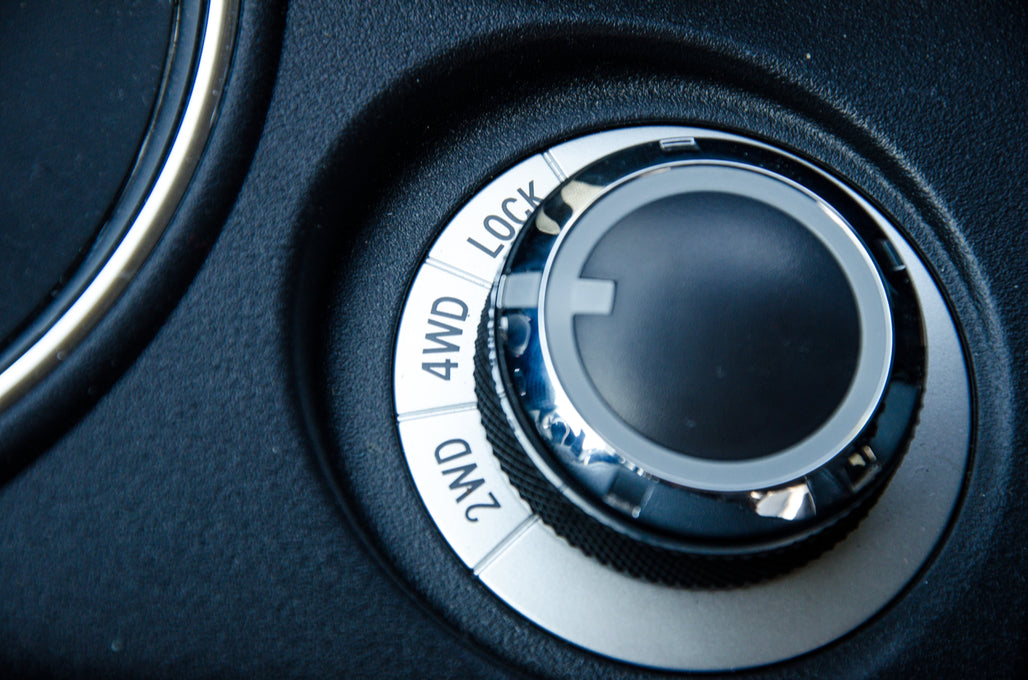What are the Tradeoffs with Four-Wheel Drive and Two Wheel Drive?
The arguments that frame four-wheel drive vs two-wheel drive are among the best in the auto industry. They pit two popular concepts against one another, and there are plenty of great points for both sides.
These arguments are especially popular among new car buyers, but there can be some confusion involved. Thankfully, we're here to help clear that up, so let's take a deeper into the differences, the strengths and weaknesses and the tradeoffs to answer any questions you might have. In the process, we'll try to answer the question of which is better 2 wheel drive or 4 wheel drive?
The Basics: Two Wheel Drive Tradeoffs
We'll start with the basics. Most cars have two-wheel drive systems, and there are some good reasons for that.
Once is fuel economy, which goes hand in hand with efficiency. Two-wheel drive systems weigh less than their four-wheel counterparts, and they do less work because they only send energy to two of the four wheels attached to the drive train. That means they're more agile, too, which means you can react more quickly to bad weather, objects or obstacles in the road, and so on.
Another plus with two-wheel drive vehicles is that they tend to cost less. You have a choice of front-wheel drive or rear-wheel drive, and front-wheel drive has improved so much in the last couple of decades that it's often nearly as effective as four-wheel drive in adverse conditions.
Also, a front-wheel-drive vehicle lacks a hump in the back to accommodate the rear-wheel drive train, which means you have more room for passengers or cargo with many of these cars.
Some rear-wheel-drive vehicles are designed for performance, but this tends to be the case mostly among the pricier vehicles.
The tradeoffs with most two-wheel-drive vehicles are fairly obvious. They're less powerful, for one thing, and this is an important issue for many of those who opt to go with four-wheel drive.
The terrain issue is another drawback with two-wheel drive vehicles. You're not going off-roading with most of them, and sometimes even an inadvertent off-road incident with a two-wheel-drive can turn into a dangerous adventure.
Many of those who choose four-wheel-drive tout this kind of safety as a basic reason for their choice, and while it is overblown to some extent, there is something to it.
The Four-Wheel Drive Tradeoffs
Four-wheel drive systems usually turn up in pickups and other heavy-duty vehicles that are used to go off-road, but four-wheel drive is also turning up in more SUV and crossover vehicles.
The biggest reason for this is the extra traction and control that four-wheel drive usually provides. It's especially handy in snow and hilly terrain, and add in the off-road versatility and you've got a popular choice. Four-wheel-drive also comes with several different choices, and this is part of the ongoing evolution of these vehicles. You can get part-time or full-time four-wheel drive, and some vehicles even have an automated intelligent version of this in which the vehicle itself monitors the conditions and makes an appropriate choice.
One of the most frequently asked questions about four-wheel-drive vehicles is fairly basic: Are 4WD faster than 2WD?
The answer is a little complicated. They do tend to accelerate faster in tough conditions because the power is allocated where it needs to be, and the fact that they're generally more powerful sometimes makes them faster, too, although this is subjective and based on make and model to some extent.
The disadvantages of four-wheel drive are just as obvious as the ones that apply to two-wheel drive. They're heavier because the drive train system weighs more, which means they're not as fuel-efficient.
They're also more expensive, but this hasn't prevented those who love four-wheel drive from paying the extra money to get what they want.
Decision Time
So which is best for you? Once again, that's a subjective individual call, but there are some things you can do to make it easier.
Specifically, what are your driving habits? Do you want to go off-road at all? How much do you value fuel efficiency, and how often will you be carrying passengers and cargo?
The answers to these questions can help you make your choice, and you can also consult with the other expert and useful guides at our main blog to get whatever information you need.
We'll also help you with whatever parts you may need, and if you're in South Florida you can stop in and see us at 3401 NW 73rd St, Miami, FL 33147



